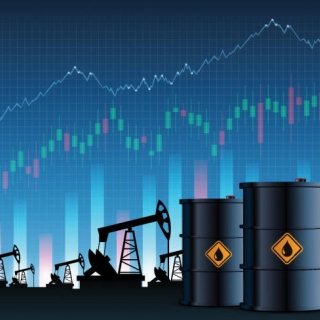


Oil prices jumped on Monday to their highest since January as Washington's weekend move to join Israel in striking Iran's nuclear facilities stoked supply concerns.
Brent crude futures were up $1.88, or 2.44%, at $78.89 a barrel by 1122 GMT. U.S. West Texas Intermediate crude was up $1.87, or 2.53%, at $75.71.
Both contracts jumped more than 3% earlier in the session to $81.40 and $78.40, respectively, their highest in five months, before giving up some of the gains.
The price surge came after U.S. President Donald Trump said he had "destroyed" Iran's main nuclear site in an attack over the weekend, joining Israeli strikes in an escalating Middle East conflict as Tehran vows to defend itself.
Iran is OPEC's third-largest crude producer. Market participants expect further price gains amid growing concerns that Iranian retaliation could include closing the Strait of Hormuz, through which about a fifth of global crude oil supplies pass.
Iran's Press TV reported that Iran's parliament approved a measure to close the strait. Iran has previously threatened to close the strait but never followed through.
"The risk of damage to oil infrastructure … has multiplied," said Sparta Commodities senior analyst June Goh.
While there are alternative pipeline routes out of the region, there will still be volumes of crude that cannot be fully exported if the Strait of Hormuz becomes inaccessible. Shippers will increasingly shy away from the region, he added.
Brent has risen 13% since the conflict began on June 13, while WTI has gained about 10%.
The current geopolitical risk premium is unlikely to last long without significant supply disruptions, analysts said.
Meanwhile, the unwinding of some long positions accumulated following the recent rally in prices could limit oil's upside, Ole Hansen, head of commodity strategy at Saxo Bank, wrote in a market commentary on Sunday. (alg)
Source: Reuters
Crude prices recovered from a midday dip on Friday on hopes Hungary can use Russian crude oil as U.S. President Donald Trump met Hungary's Prime Minister Viktor Orban at the White House. Brent crude ...
Oil prices rose on Friday (November 7th), but remained on track for a second straight weekly loss after three days of declines on oversupply concerns and slowing US demand. Brent crude rose 60 cents,...
Oil prices edged higher but remained on track for a second weekly decline. West Texas Intermediate (WTI) briefly approached $60 per barrel, while Brent held steady around $63 on Thursday. However, bot...
Oil prices declined on Thursday as investors considered a potential supply glut, as well as weakened demand in the United States, the world's largest oil consumer. Brent crude futures settled down 14...
Oil prices edged higher on Thursday (November 6), boosted by easing concerns over a potential oversupply as sanctions against Russian companies began to take effect. After closing at a two-week low i...
Crude prices recovered from a midday dip on Friday on hopes Hungary can use Russian crude oil as U.S. President Donald Trump met Hungary's Prime Minister Viktor Orban at the White House. Brent crude futures settled at $63.63 a barrel, up 25 cents...
US stocks rebounded from early losses to close mostly higher on Friday amid hopes that Congress members were making progress toward ending the government shutdown. The S&P 500 and the Dow Jones closed 0.3% higher, while the tech-heavy Nasdaq...
European stocks fell on Friday as investors digested more quarterly earnings, but weekly losses were inevitable, with concerns regarding overheated valuations evident. The DAX index in Germany dropped 0.8% and the CAC 40 in France declined 0.2%,...
 European stocks fell on Friday as investors digested more quarterly earnings, but weekly losses were inevitable, with concerns regarding overheated...
European stocks fell on Friday as investors digested more quarterly earnings, but weekly losses were inevitable, with concerns regarding overheated...
 Two weeks before the US Federal Reserve's final meeting, with the federal government's data taps closed, Atlanta Fed staff bolstered their economic...
Two weeks before the US Federal Reserve's final meeting, with the federal government's data taps closed, Atlanta Fed staff bolstered their economic...
 Asian stocks slipped at the open on Friday (November 7), following a choppy session on Wall Street. The MSCI Asia Pacific Index fell about 0.2%, led...
Asian stocks slipped at the open on Friday (November 7), following a choppy session on Wall Street. The MSCI Asia Pacific Index fell about 0.2%, led...
 The Trump administration suspended docking fees for Chinese-built ships as part of a "trade truce" last month. The move has drawn criticism for...
The Trump administration suspended docking fees for Chinese-built ships as part of a "trade truce" last month. The move has drawn criticism for...